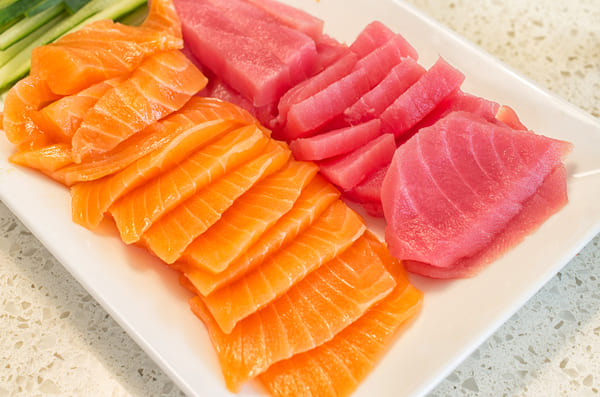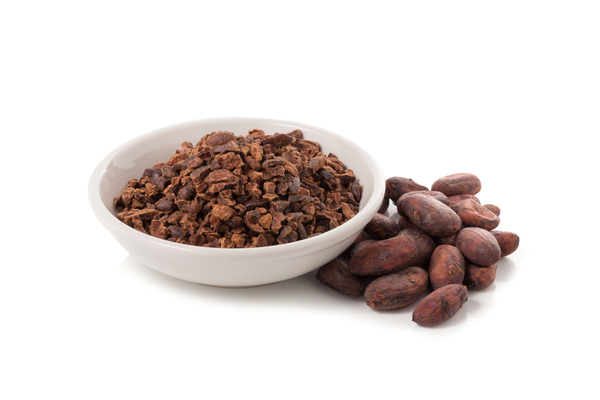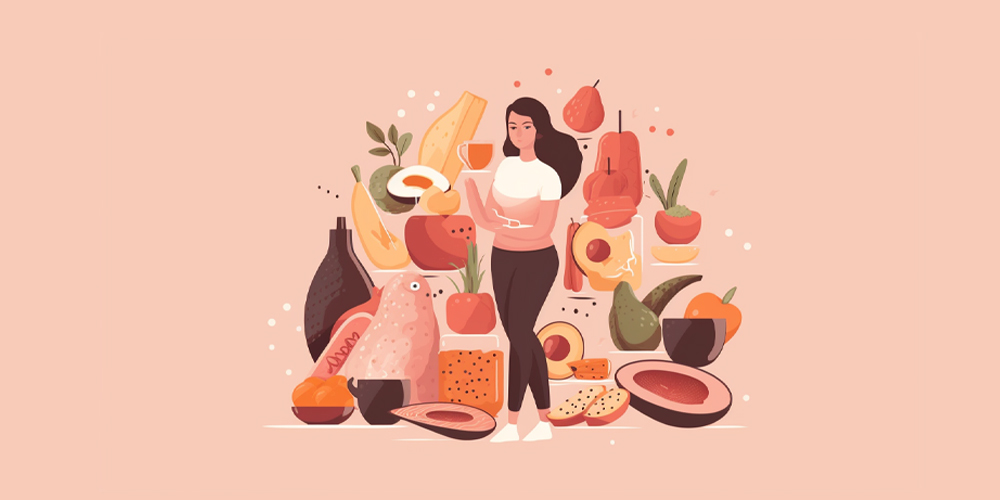Satisfy Your Cravings with These Scrumptious High Fat Foods for Keto
What are High Fat Foods for Keto?
👉 High fat foods for keto are a rich source of healthy fats with reduced carbohydrate content. Some foods that are great sources of healthy fats include avocados, olives, eggs, fatty fish, as well as nuts and seeds. These foods are especially beneficial to keto diets.
To achieve and maintain a state of ketosis, it is important to consume high fat foods for keto dieters. These foods not only keep you feeling full and energized but also provide necessary nutrients for your overall health.
For instance, avocados are a great high-fat food option. They contain monounsaturated fats that are good for the heart and also provide fiber. You can use avocados in various ways, such as adding them to salads, including them in smoothies, or using them as a spread, to enhance your keto meals.
Nuts and seeds are another tasty and healthy high-fat option. They are rich in vitamins, minerals, and antioxidants and add crunch to your meals. Including fatty fish like salmon and mackerel in your meal plan can also help increase your fat intake on a keto diet.
In this blog post, we will explore ten heavenly high-fat foods that will satisfy your cravings and nourish your body on your keto journey. Get ready to discover new ways to indulge while staying true to your dietary goals. Let’s dive into the world of delicious high fat foods for keto dieters!

Table of Contents
- How Much Fat Should I Eat on Keto?
- 10 High Fat Foods for Keto
- Fats to Avoid on Keto
- Frequently Asked Questions
- Final Words: Incorporating High Fat Foods for Keto Diets
How Much Fat Should I Eat on Keto?

A ketogenic diet involves a high intake of fat, which should make up 70% to 80% of your daily calorie intake. This means around 155 to 178 grams of fat per day for a 2,000-calorie diet. An alternative way to plan your fat intake is by aiming for approximately 1 gram of fat per pound of body weight. The rest of your daily calories should come from protein (10-20%) and very few carbohydrates (5-10%).
The keto diet limits your carbohydrate intake while increasing your consumption of fat. This approach helps your body to utilize fat more efficiently for energy. If you follow a keto diet with low fat intake, you may struggle to get into a state of ketosis. It’s also possible that you’ll feel hungrier than usual.
To better refine your keto macros, you can use a customized ketogenic macro calculator. This type of tool calculates how many calories, fats, carbs, and proteins you require daily based on your weight and daily activities.
10 High Fat Foods for Keto
To improve your diet by reducing carb intake and increasing healthy fats, consider adding the following foods to your keto grocery list.
1. Avocados

Avocados contain healthy fats and are recommended for a low-carb, high-fat diet. They are mainly composed of over 75% fat, containing omega-3 fatty acids, as well as vitamin C, vitamin E, and fiber. By making you feel full for a longer period, including avocados in your diet may help with weight loss.
Additionally, avocado is versatile and can complement almost any food. It can be sweet (like in smoothies) or savory (as with scrambled eggs). It also serves as a healthy replacement for fatty ingredients such as butter, mayonnaise, and cream.
One half of an avocado contains:
- 115 calories
- 10.5 grams of fat
- 1 gram of protein
- 1 gram of net carbs
2. Nuts

Eating a variety of nuts increase your intake of healthy fats, plant-based protein, and fiber. It may also help lower the risks of heart disease, cancer, diabetes, and respiratory illnesses.
To get the most benefits, it’s recommended to eat a variety of nuts because their nutrient composition varies. Your options include almonds, walnuts, pecans, peanuts, Macadamia, and Brazil nuts.
One ounce of each nut variety has the following nutrients:
| Nut Variety | Calories (kcal) | Carbs (g) | Fiber (g) | Total Fat (g) | Protein (g) |
| Almonds | 165 | 6 | 4 | 14 | 6 |
| Brazil Nuts | 190 | 3 | 2 | 19 | 4 |
| Macadamia | 200 | 4 | 2 | 21 | 2 |
| Pecans | 195 | 4 | 3 | 20 | 3 |
| Walnuts | 185 | 4 | 2 | 18 | 4 |
3. Nut and Seed Butter

Nut and seed butter offers the same health benefits as whole nuts and seeds – with the additional advantage of its versatility. For example, you can dip your veggies in almond butter or spread sunflower butter on keto bread. You can also blend peanut butter fruit smoothies or use them to make energy bites. In addition, you can incorporate them into sauces and marinades.
If you plan to use store-bought nut and seed butter, make sure to read the ingredient label carefully since some types may contain added sweeteners that are not suitable for a keto diet. Alternatively, you could make your own nut and seed butter.
4. Fatty Fish

Fatty fish like salmon, tuna, anchovies, mackerel, and sardines can have many health benefits. Seafood is a good source of EPA and DHA omega-3 fats. DHA is a type of fat that covers up to 80% of our brains. Thus, consuming fish that are high in omega-3 fatty acids is beneficial for our brain health and mental well-being. Additionally, certain types of seafood like salmon contain vitamin D, which is important for immune function, bone health, and other health benefits.
You can prepare a wild-caught, fatty fish fillet by either baking or grilling it, and serve it over a salad or roasted vegetables. Alternatively, you can stuff lettuce wraps with a mix of canned fish, mayo, herbs, and spices.
5. Olives and Olive Oil

Research over the decades has shown that olives and olive oil offer several health benefits. Eating olives can be beneficial for your health because they contain heart-healthy fats and vitamin E, which may help lower the risk of chronic diseases such as cancer, heart disease, and osteoporosis.
Olives can be enjoyed in various ways, including as a standalone snack or as an addition to salads. Additionally, cold-pressed virgin olive oil is a great source of fat that can be used to add flavor to vegetables, dressings, or marinades.
6. Eggs

Although eggs are seen as a source of protein, they actually contain over 60% fat and only 30% protein. This makes eggs a great food choice for those following a keto meal plan due to their ideal macro-ratio. They also provide choline, iron, and vitamin D.
One study also found that eating eggs for breakfast resulted in a decrease of almost 400 calories per day, which may aid in significant weight loss for some individuals.
One whole egg contains:
- 77 calories
- 5 grams of fat
- 6 grams of protein
- 0.5 grams of net carbs
7. Coconut
Natural medium-chain triglycerides (MCTs) are found in coconuts and coconut oil, which are commonly used as sources of fat. Despite being a type of saturated fat, MCTs are distinct from the saturated fat found in animal-based foods and can be easily absorbed and utilized by the body.
Research suggests that MCTs can assist in the transition to ketosis. This is because they are believed to promote the production of ketone bodies. MCTs may also contribute to weight loss by curbing appetite and assisting with abdominal fat loss. So if you are following a ketogenic diet, it might be beneficial to use coconut oil when cooking.
In addition to other nutrients, coconut meat is a source of fiber and contains small amounts of iron and magnesium. A half-cup of shredded coconut has the following nutrients:
- 140 calories
- 13 grams of fat
- 2.5 grams of net carbs
- 1 gram of protein
8. Seeds

You can increase your intake of healthy plant-based fats by incorporating chia, flax, sesame, pumpkin, and sunflower seeds into your diet. These seeds contain essential nutrients and offer a range of health benefits.
Chia seeds are a healthy high-fat food with a unique weight loss benefit. When mixed with water, they can expand up to 12 times their size and create a gel-like texture. This helps you feel fuller for longer and may also promote lower cholesterol and better blood sugar control.
Chia seeds provide plant-based omega-3s known as ALA fats, which are beneficial for heart health. A single tablespoon of chia seeds contains 4 grams of both fiber and fat.
Flax seeds also have plenty of benefits, providing anti-inflammatory omega-3 fats and fiber. A quarter cup of flax seeds provides 18 grams of fat, 11 grams of fiber, and 7 grams of protein.
9. Full-fat Dairy

Full-fat dairy products are good options for those looking to incorporate healthy fats in their keto diet. Butter and ghee, as well as fatty cheeses and low-carb yogurt, are whole-food sources of quality fat and fat-soluble vitamins.
If you’re adding dairy to your diet, avoid flavored or sweetened options as they increase your carb intake. This is frequently the case with flavored yogurt and cottage cheese. Instead, go for unsweetened full-fat yogurt, Greek yogurt, or Icelandic skyr. Yogurt is also a good source of probiotics, which enhance digestive health.
Cheese is another good food choice for people following a keto diet because it is high in fat and low in carbs. There are numerous types of cheese available with varying nutrient profiles. Cheese is also a rich source of protein and calcium. Additionally, fermented varieties like cheddar and gouda contain probiotics.
10. Cacao Nibs

Although chocolate is usually not associated with being low in carbs or fats, some types of dark chocolate, specifically cacao, are high in healthy antioxidants and fats. It has been linked to various health benefits such as improved mood, heart health, and weight loss.
Studies indicate that consuming cacao may decrease appetite and boost fat oxidation, which can aid in weight management. Additionally, cacao contains plant-based saturated fat, fiber, magnesium, zinc, and iron. To reap these benefits, one can consume cacao nibs or at least 70% dark chocolate. However, it is important to verify that there isn’t too much sugar, as it can increase carbohydrate intake.
One-quarter cup of cacao nibs contains:
- 180 calories
- 13 grams of fat
- 4 grams of protein
- 2 grams of net carbs.
Fats to Avoid on Keto
When following a ketogenic diet, be mindful of the types of fats you consume to ensure overall good health. It’s recommended that you consume unsaturated fats, which are mainly found in plant-based foods and have proven health benefits such as promoting heart and brain health. These fats are also known as monounsaturated fats (omega-3s) and polyunsaturated fats (omega-6s).
Simply meeting your daily recommended intake of fats is not sufficient. It is advisable to avoid the foods listed below while following a low-carb diet.

Artificial Trans Fats
It’s crucial to avoid artificial trans fats as they can significantly raise the risk of heart disease, regardless of your dietary preferences.
Steer clear of commercially processed foods like biscuits, pastries, cakes, and ultra-processed snacks as they are known to have trans fat. These trans fats are commonly present in highly refined oils, which could be labeled as “partially hydrogenated oils” or “shortening” in the ingredient list.
Processed Meats
Deli meat, sausages, hot dogs, and cured and smoked meats are often advertised as keto-friendly, even though they are processed. Although these foods can be included in a “dirty” keto diet, consuming high amounts of processed meats can increase the risk of digestive tract cancers.
It is recommended to limit your consumption of these foods and prioritize whole, minimally processed foods in your diet.
Fried Foods
While certain ketogenic diet plans may allow for deep-fried foods, it’s important to be cautious before incorporating them into your own plan. These foods often contain high levels of trans fats.
When frying foods using highly refined oils like corn oil, there may be some trans fats present. Additionally, when these oils are heated to high temperatures, it may increase the amount of trans fats in them.
To maintain good health while following a ketogenic diet, it is advisable to limit your consumption of fried foods. This is because fried food tends to absorb unhealthy fats which could lead to adverse health effects in the long term.
Frequently Asked Questions
What Food Has Fat But No Carbs?
For those following a low-carb or ketogenic diet, there are many food options that are high in fat and low in carbs. Butter and ghee are types of fats that are low in carbs and can be used for cooking, baking, or as a topping to add flavor to food. Olive oil is another type of fat that is carb-free and is mainly composed of healthy monounsaturated fats. Coconut oil, derived from coconut flesh, is also low in carbs and mostly consists of saturated fats.
To increase your fat intake without consuming too many carbs, you can incorporate foods that are rich in fat but low in carbs into your diet. While a no-carb diet may seem like a tempting option for weight loss, it’s important to note that a balanced and nutritious diet can offer greater benefits for your overall health.
What Happens if I Don’t Eat Enough Fat on Keto?
Not having enough fat on a keto diet can make it hard for you to maintain ketosis. Fat is the primary fuel for this diet and not getting enough can lower your energy levels. Also, not eating enough fat can stop your body from properly absorbing nutrients. To make sure your keto diet works well, it’s important to eat enough healthy fats. Learn more about the role of fats in a keto diet here.
What Snacks Are High in Fat?
Macadamia nuts are a great example of fatty, low-carb nuts with healthy monounsaturated fats. Cheese is another excellent option, with cheddar, brie, and cream cheese being high in fat and delicious. Lastly, olives are a portable and flavorful option that is rich in healthy fats.
Final Words: Incorporating High Fat Foods for Keto Diets
Including high fat foods for keto in your diet can help you reach and maintain ketosis while also enjoying tasty and fulfilling meals. In this post, we’ve covered several delectable high-fat foods that are ideal for those following the keto diet.
There are plenty of keto-friendly food options available that you can enjoy without compromising your health goals. These options include creamy and versatile avocados, nuts & seeds that provide a crunchy texture, and omega-3-rich fatty fish. Apart from providing healthy fats, these foods also offer essential nutrients that promote overall health.
For successful adherence to a ketogenic diet, consume a generous amount of foods high in fat while restricting your carbohydrate intake. To avoid feelings of deprivation, try to discover creative methods to add these foods to your meals and snacks.
Improve your keto journey by adding high-fat foods to your diet like putting butter in your omelet or snacking on macadamia nuts. It’s important to listen to your body and select foods that work well for you while following the keto diet. Experiment with various high-fat foods that you enjoy and get creative with your meals to make them both healthy and indulgent.
So, go ahead and indulge in these heavenly high fat foods for keto, and savor the benefits they bring to your diet. Here’s to your success and well-being on your ketogenic journey!

